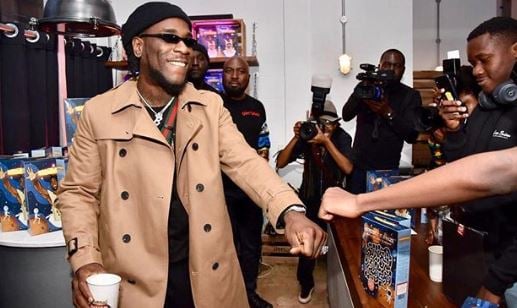It is already an established fact that Burna Boy had an incredible 2018, what with a strong album that displayed his musical range and talent. But the story of Burna Boy’s album isn’t complete without a mention of another album, Kanye West’s ‘Ye’ – which, coincidentally, shared a similar name with the most popular song off his album. ‘Ye’.
This coincidence catapulted Burna Boy from a musical talent with a loyal niche audience to the mainstream, placing him side by side with Afropop stars like Tiwa Savage, Davido and Wizkid, who have found global fame, essentially becoming musical giants in their own right. It may seem shocking, but as at mid-last year, Burna Boy was still referred to as underrated.
Then came the recognition from the West, propelled entirely by a coincidence. Burna Boy went from underrated to party jollof at home and abroad. And this is quite instructional for this piece: Burna Boy’s celebrity at home grew because of the recognition he was getting outside of Africa, not because of his immense talent or his consistency over the years.
The only new variable in the question was western attention. And, thus, Burna Boy became more valuable and highly regarded at home.
For a Nigerian creative, the easiest way to become known in their home country is to be endorsed abroad, to have western media and audience rave about your talent, and to sell-out abroad (no, in this case, other African countries aren’t considered abroad but instead the so-called developed countries with a majority white population. It is exactly why the argument about the level of Yemi Alade’s fame still persists across Nigerian Twitter, despite clear evidence that she has strategically marketed herself as the leading pan-African female artiste and appears to be well known in francophone Africa).
As any publicist or marketer working within the creative industry would tell you: one media feature by a US or UK outfit is more powerful than 20 similar features from Nigerian media. It is also why public figures will more clearly pander to foreign press than Nigerian press because they understand that Nigerians value Oyibo opinion much more.
A pertinent question to ask is: even though Wizkid was already famous nationally, would we rate him as highly as we do now if not for his international recognition?
Or will Nigerians know or appreciate contemporary creatives like Nnedi Okoroafor, Tomi Adeyemi, Victor Ehikhamenor, Yagazie Emezi, Chimamanda Adichie, amongst others, if they hadn’t been heavily accepted, endorsed and celebrated abroad?
It is incredulous that our sensibility and appreciation is tied to western endorsement, but it is also sad that we still suffer from neo-colonial mentality.
Then in comes Burna Boy’s recent rant about Coachella’s use of small font size to write his name.
The temptation to label Burna Boy as ‘entitled’ or ‘proud’ might be understandable, but it also points to our ridiculous need for humble public figures, for people who pretend to be or are unawares of their own worth, and, mostly, our over-appreciation of western recognition and fear of shaking tables: accept what you get; don’t raise your voice or you won’t get more.
While it is an established fact that the font sizes are part of the visual brand identity of Coachella, which is in its 20th year, we shouldn’t overlook this crucial moment – afforded to us by Burna Boy’s unapologetic sense of self-worth – to talk about western perception of Africans and African creative products and how we undervalue our own.
The point is to have a conversation about these things.
Regardless, Burna Boy’s celebrity is bound to grow from this and his Coachella performance will be closely watched too.
Copyright 2025 TheCable. All rights reserved. This material, and other digital content on this website, may not be reproduced, published, broadcast, rewritten or redistributed in whole or in part without prior express written permission from TheCable.
Follow us on twitter @Thecablestyle

